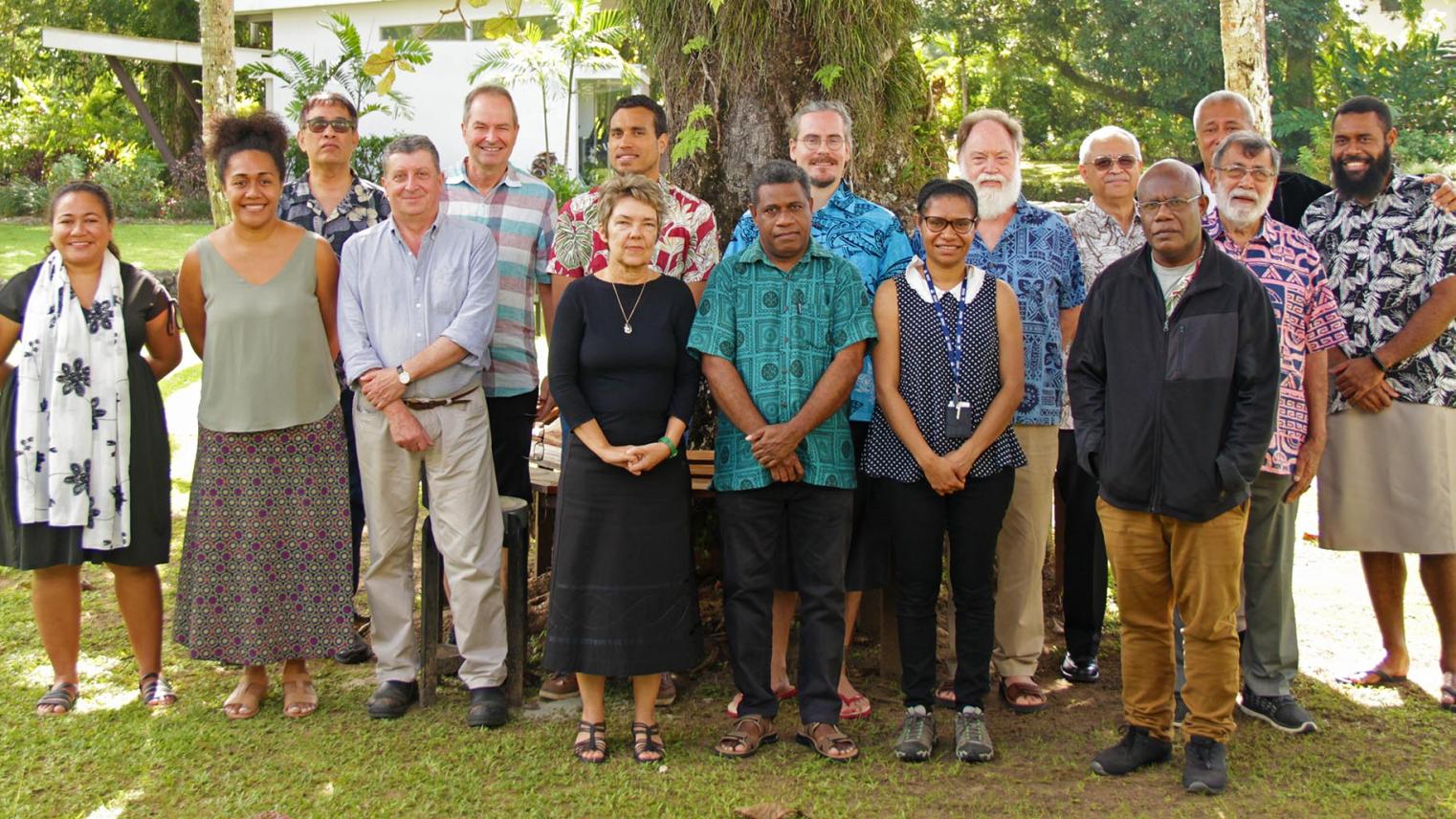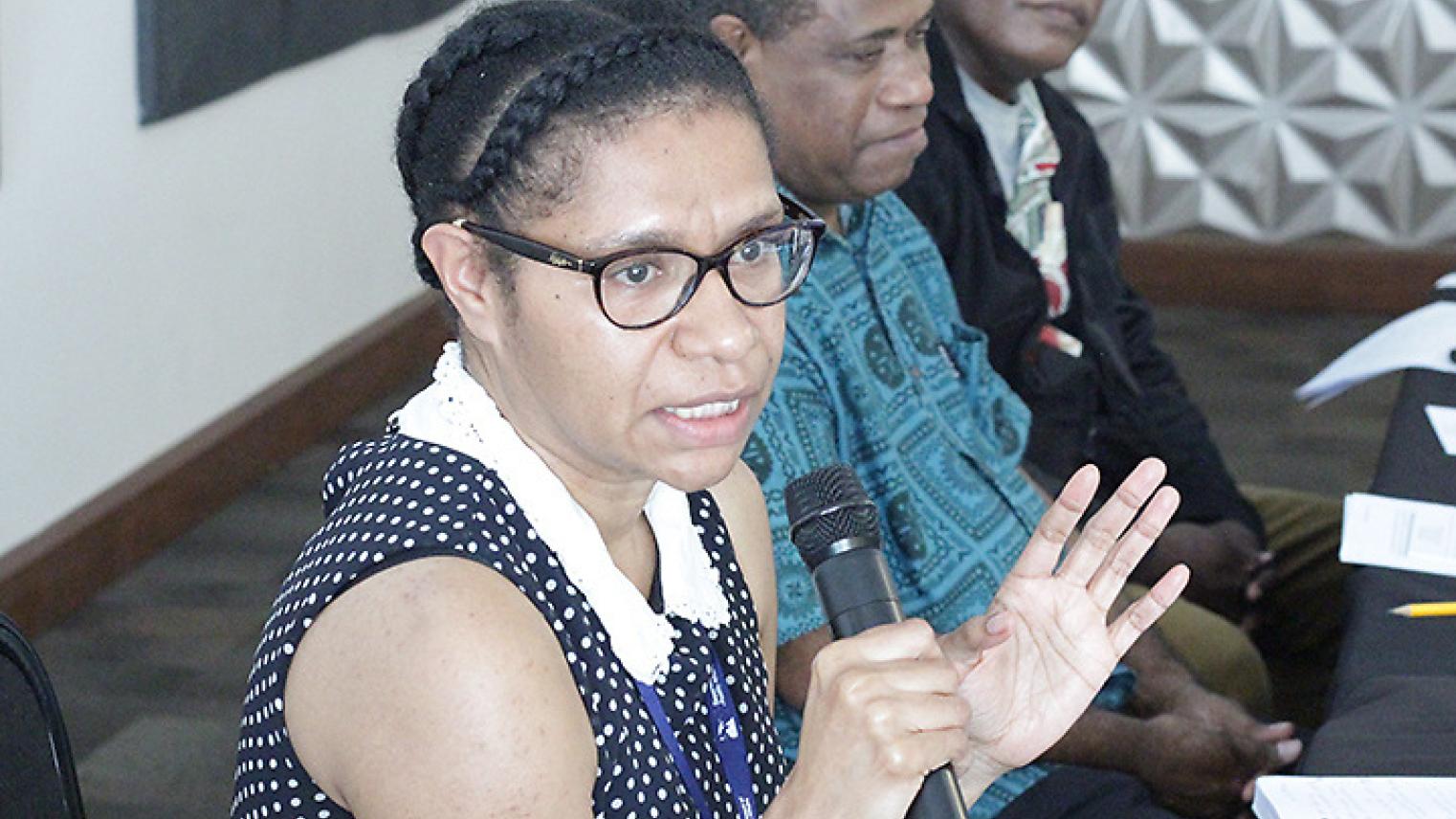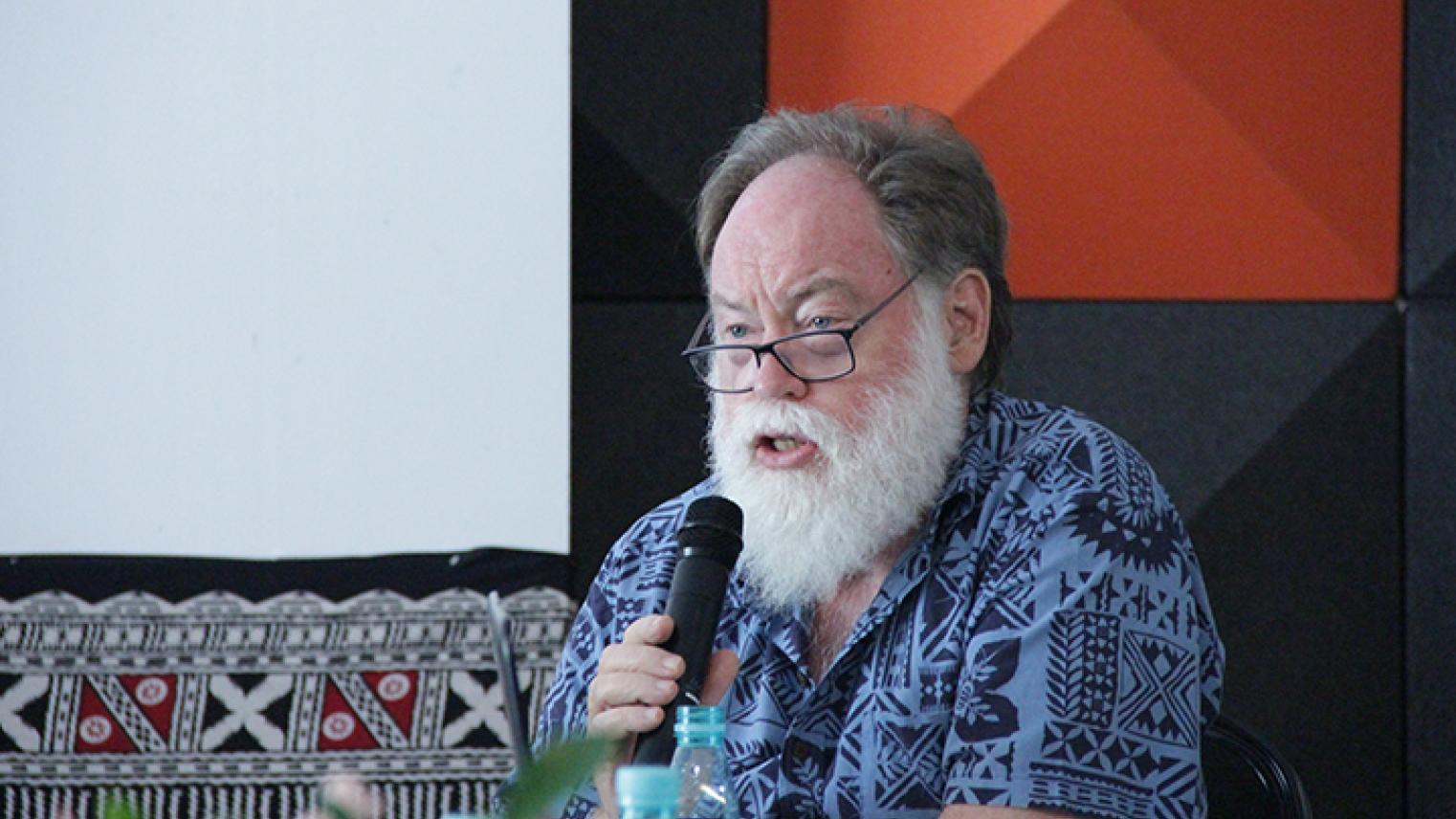The term 'Oceanic Diplomacy' refers to the distinctive diplomatic practices and principles which come out of the long history and diverse cultures of the Pacific Islands. These longstanding traditional systems are still important in the conduct of relations among tribes and clans within the postcolonial states of the Pacific. These principles, practices and protocols work alongside Western diplomatic practices in the performance of modern diplomacy by Pacific Island states and are sometimes employed in the region’s diplomatic approaches to the global arena. This collaborative project brings together academics and practitioners to explore the value and significance of these practices in modern contexts within the state, between Pacific Island states, and in Pacific diplomacy in the global arena.
Community of scholars
The research project brings together a community of scholars from across Oceania, writing from multiple disciplines in academia, media and policy. For many years, the authors have witnessed the significance and growth of local cultural practices and protocols incorporated into contemporary modern state diplomacy. These cultural practices and protocols originate from Oceanic civilisations and from contact amongst political communities before the arrival of Europeans in the Pacific Islands. Not limited to diplomatic practice amongst the islands, the enquiry seeks to demonstrate connectivity and diplomacy to political communities in the highlands and deserts. Oceanic diplomacy seeks to unpack relationships and practice covering the regions from Australia to Rapa Nui and Hawai’i. In what originated as a Talanoa in the Molikilagi Bure of the University of the South Pacific, and became a monthly zoom Talanoa during the COVID period, the community of scholars grew in numbers and added new treasures to the project. The community have contributed to publications through discussion papers, In Briefs, Discussion Papers and various conference panels.

As the borders re-opened post-COVID in May 2022, with the support of the Department of Pacific Affairs at ANU (through DFAT’s Pacific Research Program), the community of scholars was able to meet in Suva. The two-day workshop provided the opportunity for 25 scholars to present the findings of their research and share ideas with the group. The hybrid workshop brought together participants from Australia, Fiji, French Polynesia and New Caledonia. It also catered for participants from countries that were still in lockdown: Micronesia, Tonga, Vanuatu, Solomon Islands, Samoa and Tuvalu. Based on the workshop, the authors are contributing to an edited book in the hope that it will become a university teaching resource to complement courses at USP, ANU and other universities teaching Pacific diplomacy, and at the same time a guide for practitioners.


NAIDOC Week panel discussion
The rich and distinct culture of Indigenous Australia resonates deeply with the Pacific family and First Nations values can inform closer connection in the Pacific through our diplomacy, development and defence activities. Elevating the perspective of First Nations people within Australia’s foreign policy and committing to Indigenous representation in international engagement enables deeper engagement with our closest partners including the Pacific family.
Held on 4 July 2023, this AP4D webinar focused on the contribution and cultural knowledge First Nations people bring to foreign policy discussions and international engagements.
Salā Dr George Carter, Director of The Pacific Institute at The Australian National University, facilitated a conversation between Mr Justin Mohamed, Australia’s inaugural Ambassador for First Nations People, Ms Jane Bastin-Sikimeti, Director, Pacific Gender Section at the Department of Foreign Affairs and Trade, and Lieutenant Colonel Eileen Hall, Command Cultural Adviser with the Australian Army.
The event was organised by Asia-Pacific Development, Diplomacy & Defence Dialogue (AP4D) brings together individuals and organisations united by a mission to reimagine Australia's international relations. It provides a platform for constructive dialogue, fresh ideas and future-focused debate on Australia's role in the Asia-Pacific.
